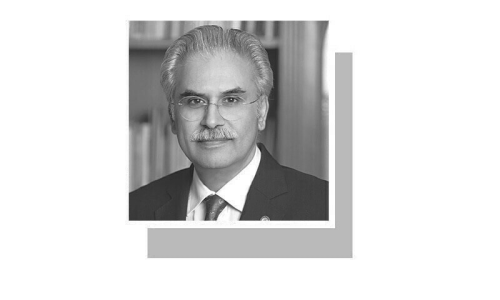ISLAMABAD: Opposed to the government decision to extend jurisdiction of the Islamabad High Court (IHC) to the Federally Administered Tribal Areas (Fata), the country’s major opposition parties believe that the move is another ploy to delay the long overdue reforms in the region.
The opposition suspects that the government is now backtracking from its earlier agreed plan of merging Fata with Khyber Pakhtunkhwa (KP) province because it wants to run affairs of the terror-hit land through remote control from Islamabad.
The opposition parties and legislators from Fata are set to discuss the matter at a multi-party conference on “Fata Reforms” that has been convened by the Awami National Party (ANP) in Islamabad and they may come out with a joint declaration to reject the move.
The opposition believes that the government had taken this step to please its allies — the Jamiat Ulema-i-Islam-Fazl and the Pakhtunkhwa Milli Awami Party — who had openly opposed Fata’s merger with KP.
ANP to hold multi-party conference on Fata reforms
The federal cabinet on Tuesday had approved a plan to extend jurisdiction of the Supreme Court and the IHC, instead of the Peshawar High Court (PHC), to Fata as a first step towards implementation of the Fata reforms.
In the initial draft prepared in the light of suggestions of a six-member special committee that had proposed merger of the tribal areas into KP, jurisdiction of the PHC was to be extended to the tribal areas.
When contacted, Pakistan Peoples Party Senator Farhatullah Babar said the decision to extend jurisdiction of the IHC, instead of the PHC, to Fata showed the intention that Islamabad did not want to give up its hold on the tribal areas and wanted to keep it “remote controlled from the Presidency”.
He recalled that the KP Assembly had passed unanimous resolutions demanding extension of jurisdiction of the PHC to the tribal areas. Besides, the PHC itself had in a 2014 verdict asked the federal government to make legislation to this effect.
“It is thus difficult to understand why instead of the PHC the jurisdiction of the IHC is being extended to the tribal areas,” he said.
Mr Babar said the “civil-military bureaucratic complex” was “averse to sharing power with the people” and had been “using the Presidency to perpetuate its stranglehold”. “That is why duly empowered local governments are not about to be set up in the tribal areas. And there is no word on abolishing the FCR either,” he said.
Moreover, he said, those political parties which feared that the merger would change the drivers of political discourse in Fata were also opposed to Fata reforms. “The mosque and the pulpit will no longer dominate the political discourse, they fear.”
Mr Babar expressed concern over the government proposal to appoint a chief operating officer (COO) in Fata for the transitional period. If the COO was appointed from the military then the civilian president and the civilian governor would be made redundant and control of the tribal areas would shift to Rawalpindi from Islamabad, he warned.
Mr Babar said it was wrong to say that Fata people were opposed to merger. “Similar spurious arguments were used to deny them the right to vote. The same faulty reasons were advanced at the time of allowing political parties to operate freely in Fata,” he added.
Pakistan Tehreek-i-Insaf MNA Sheheryar Afridi lashed out at the government for delaying Fata reforms, alleging it had been doing so only to appease JUI-F chief Maulana Fazlur Rehman.
He said poor tribal people did not have the money even to travel within the agencies, and now the government wanted them to come to Islamabad to seek justice.
“This is a sheer joke and a drama,” the PTI lawmaker said and alleged that the main purpose of such actions was to delay the reforms as elections were just a few months away. Similarly, Qaumi Watan Party chief Aftab Sherpao said it seemed that the government was either confused or it wanted to confuse others on the issue as it wanted to linger the Fata reforms.
Published in Dawn, September 14th, 2017













































Dear visitor, the comments section is undergoing an overhaul and will return soon.